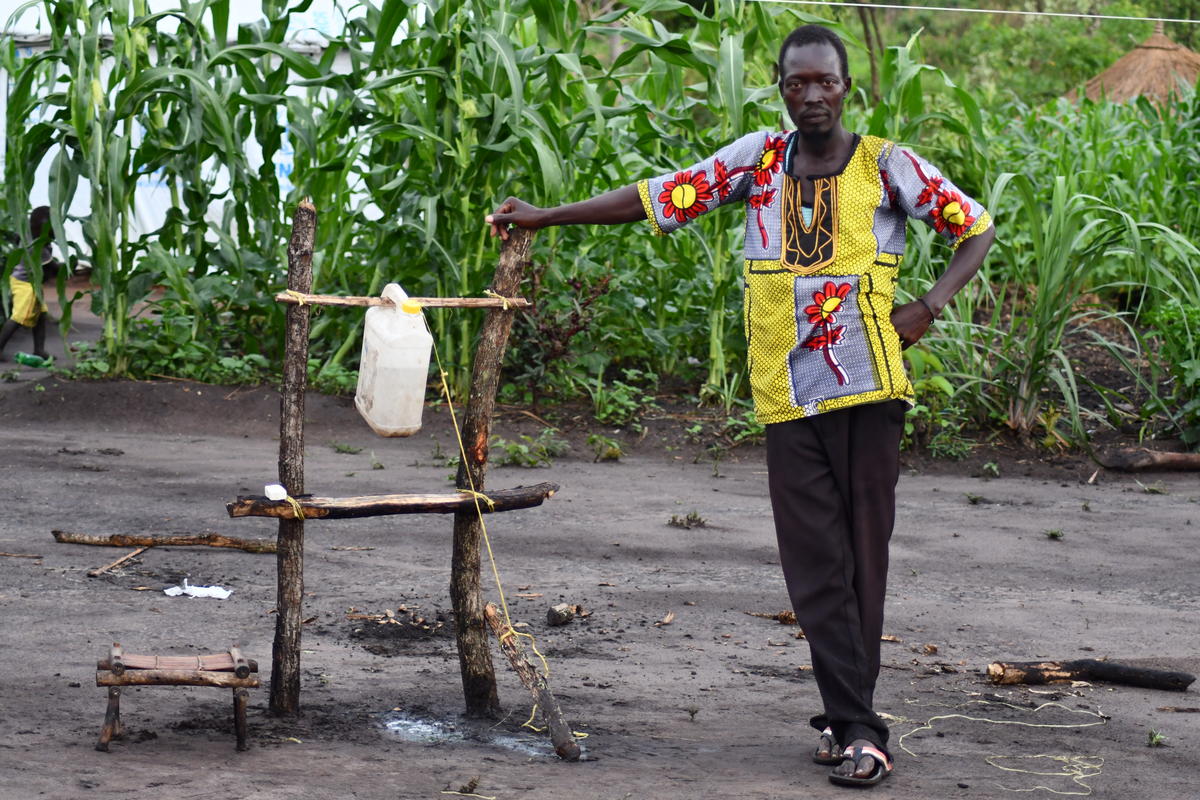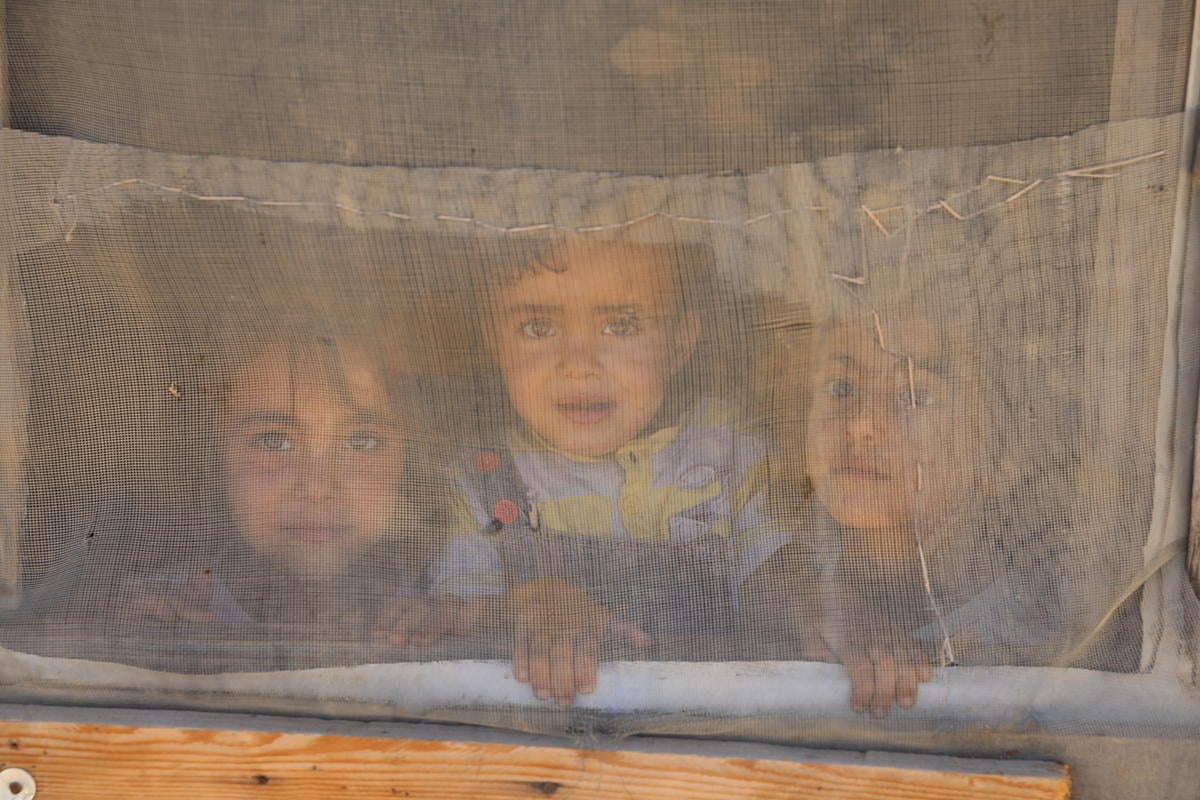South Sudanese refugees make tippy taps to promote hygiene in DRC camps

South Sudanese refugees make tippy taps to promote hygiene in DRC camps
A plastic jerrycan filled with water rests snugly between the trunks of a small tree in front of Ferida’s shelter in Bele settlement, in the Democratic Republic of Congo’s Haut Uele Province.
The South Sudanese refugee has plugged a small hole at the bottom of the can with a twig, which she removes whenever she needs to wash her hands.
“This way, my children can wash their hands any time and anyone who visits my house too,” explains Ferida. “It’s also a reminder to my neighbours to do the same."
Since the first coronavirus case was confirmed in the DRC in March 2020, UNHCR, the UN Refugee Agency, has put measures in place to prevent the virus from spreading among refugees, the internally displaced and their host communities.
“This way, my children can wash their hands any time and anyone who visits my house too.”
These measures include raising awareness on the risks of the disease and strengthening hygiene practices through radio announcements and door-to-door visits by community workers.
Over 254,000 people have been reached in person though awareness activities, while an estimated 3.3 million more have heard the radio messages. Over 73,000 people have also received soap and nearly 2,500 handwashing stations have been installed across eleven refugee sites and five provinces hit by internal displacement.
Together with partner agency, the Association for Economic and Social Development (ADES), UNHCR has also trained South Sudanese refugees in Bele and Meri settlements on how to make their own tippy taps, using recycled materials like pieces of wood, old jerrycans, strings and rope.
Tippy taps are simple yet effective handwashing devices that usually use a stick, designed like a foot pedal to tip water from a container into the hands, thus allowing users to wash their hands without touching the container. The taps come in various forms, depending on the creator’s creativity and available resources.
“I decided to make a tippy tap to save myself and my family,” says Chris Bida, a South Sudanese refugee and secretary of Bele settlement’s refugee committee. “Anyone can do it because it is very simple to make. You don’t need to pay for it.”
Chris made his tippy tap by hanging a jerrycan on a wooden stick and installing a pedal that allows him to tilt the jerrycan until water flows.
Accessing health care is particularly difficult for displaced communities like refugees.
“Many refugees can’t afford the cost of treatment or medicine without UNHCR’s assistance,” explains Koffi Dodzi Adossi, UNHCR’s Head of Office in north-eastern Ituri province. “They also live in remote locations where health care is hard to access.”
“Anyone can do it because it is very simple to make. You don’t need to pay for it.”
For everyone, communal water points have been made safer with markings on the ground that ensure social distancing while people collect water.
“There’s a handwashing point right in front of my house so I can wash my hands there,” says Regina, a mother of two who lives in Bele settlement. “I help out by refilling it with water when needed.”
With the additional coronavirus threat, UNHCR is aiming for every refugee household to have its own handwashing device, but with limited funding available to cater to the immense needs of the more than half a million refugees and five million internally displaced people in the country, involving displaced communities in the effort is crucial.
As of 09 of June, UNHCR had only received 33 per cent of the US$745 million required globally to adequately respond to and prevent the virus from spreading.
-
See also: As COVID-19 and conflict surge, DR Congo displaced face deadly consequences of chronic underfunding
So far, over 300 tippy taps have been installed in the refugee settlements and 200 refugees have been trained on how to make them.
Juma and his wife made a tap and placed it in front of their door.
“The training I received was very practical, almost like a demonstration,” explains Juma, who lives in Bele. “I encourage others to make their own too as it is easy and there is no need to buy any tools.”











